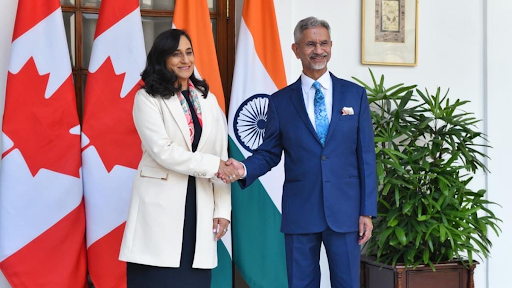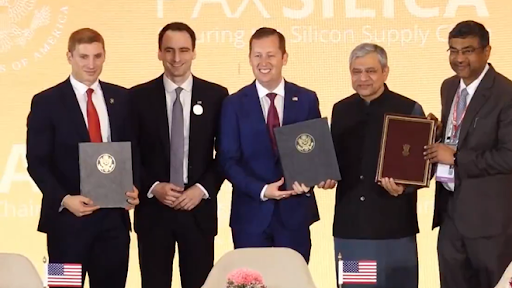



India and Canada are resetting their relationship on pragmatism and mutual interest. Recent high-level dialogues have overcome past mistrust, promoting economic, technological, and security cooperation, paving the way for a resilient, strategically significant alliance that benefits both nations and global stability.

Copyright infringement not intended
Picture Courtesy: THEHINDU
India and Canada agreed on a series of measures to restore relations, including relaunching the energy dialogue, after talks between External Affairs Minister S. Jaishankar and Canadian Foreign Minister Anita Anand.
|
Read all about: ABOUT INDIA-CANADA RELATIONS l RECENT DEVELOPMENTS IN INDIA CANADA RELATIONS l CANADA-INDIA RELATIONS, KHALISTAN ISSUE |
Relaunching Trade and Investment Talks
Reviving Energy and Critical Minerals Cooperation
Strengthening Science, Technology, and AI Collaboration
Civil Nuclear Cooperation
Expanding People-to-People Ties
Recognized India’s Security Concerns
The joint statement's emphasis on "respect for each other’s concerns and sensitivities", from New Delhi's perspective, acknowledged long-standing concerns about pro-Khalistan extremist activities in Canada.
De-risking the Relationship
The "New Roadmap" is an attempt to "de-risk" the bilateral relationship from the political fallout of the past. By focusing on areas of mutual benefit, both countries are creating a positive agenda.
A Pragmatic Reset
This revival is driven by broader global challenges, including economic uncertainty and shifting geopolitical alliances. By strengthening ties, both democracies aim to create more resilient supply chains and reinforce strategic stability.
India and Canada reset ties on pragmatism and mutual interest, overcoming past mistrust, strengthening economic, technological, and security cooperation, and building a resilient partnership contributing to global stability and prosperity.
Source: THEHINDU
|
PRACTICE QUESTION Q. Diplomacy acts as the bridge that separates long-term strategic interests from short-term geopolitical friction. Critically analyze in the context of India-Canada Relation. 250 words |
Diplomatic relations between India and Canada were established in 1947, shortly after India gained independence. This long-standing relationship is built on a foundation of shared democratic values and membership in the Commonwealth.
The Khalistan movement is a Sikh separatist movement seeking to create a homeland for Sikhs called Khalistan in the Punjab region. The presence and activities of pro-Khalistan elements in Canada have been a long-standing point of friction in the bilateral relationship, with India expressing concerns about Canada providing a platform for extremist activities that threaten its sovereignty.
It is a proposed free trade agreement between India and Canada. Negotiations aim to boost bilateral trade by reducing tariffs and trade barriers.




© 2026 iasgyan. All right reserved